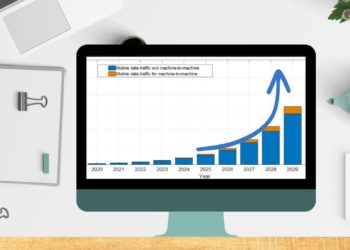Our homes are more than structures. They are evolving systems of comfort, safety, and function—each one quietly influenced by an unseen hero: the HVAC system. It’s easy to overlook this technology that hums in the background, but a closer look reveals its deeper connection to your daily life.
In reality, HVAC systems shape far more than temperature. They touch every corner of home experience—from the way you sleep to your monthly utility costs, from indoor air quality to the rhythm of your routines. Let’s pull back the curtain and explore how this vital component interacts with your home and habits—and why ignoring it could cost more than just discomfort.
A System That Thinks in Seasons
Unlike light switches or kitchen appliances, HVAC systems work seasonally and reactively. They don’t just heat and cool—they respond. They adapt to outside temperature swings, internal usage patterns, and even the number of occupants in a space. The problem? Most homeowners treat them like set-it-and-forget-it machines.
An experienced HVAC contractor would likely tell you that no two systems—or homes—perform the same. Customization and responsiveness are built into these systems, especially with newer technology. Unfortunately, when neglected, even the best-designed systems begin to decline, slowly losing efficiency and precision.
Sound, Scent, and Subtlety: Early Warnings from Your HVAC
One of the most fascinating aspects of HVAC performance is how silently it signals trouble—if you know what to look for. Maybe you’ve noticed a faint smell when the furnace kicks on. Perhaps there’s a clicking sound from a vent that used to run quietly. Or the boiler makes a high-pitched hum that wasn’t there last winter.
These are not just quirks—they’re cues.
Furnace repair is often needed long before the system stops working completely. Loud startups, longer heating times, or uneven airflow are signs of stress. Left unchecked, these symptoms strain the entire network—ducts, motors, thermostats—and eventually raise your energy bills while reducing comfort.
Likewise, boiler repair issues can manifest subtly. Water not quite warm enough? Uneven pressure? You’re not imagining things. Your HVAC is trying to communicate—it’s your job to listen before the whispers turn into alarms.
The Psychological Side of HVAC
There’s also a psychological dimension. We often associate “comfort” with soft blankets, warm lighting, or cozy furniture. But underlying all of that is a stable, reliable temperature. Studies show that small fluctuations in indoor climate affect sleep quality, productivity, and even mood. That slight chill in the morning? It can delay your start. A muggy room in summer? It slows focus and adds to fatigue.
An aging system may still function—but it stops regulating micro-comfort. You’ll nudge the thermostat more often, adjust vents manually, or use space heaters to fill the gaps. These are band-aid solutions for a system quietly underperforming.
When the time comes, a heat pump replacement or system upgrade isn’t just about mechanics—it’s about restoring consistency to your environment and your mindset.
Energy, Air, and Ecosystems
Today’s HVAC systems don’t just manage temperature—they filter air, regulate humidity, and circulate oxygen. In homes with older systems or poorly maintained equipment, indoor air quality suffers. Dust particles, allergens, and even bacteria build up without adequate ventilation and filtration.
That’s where a reliable HVAC contractor earns their value—not just through repair work but in long-term system health. Routine filter changes are a start, but whole-home evaluations of airflow, return registers, and ductwork can reveal underlying inefficiencies.
Even small improvements add up. Efficient systems lower monthly energy consumption, reduce greenhouse emissions, and prolong the life of home interiors—like wood flooring, paint, and drywall—that can be damaged by fluctuating humidity or heat.
Financial Realities You Can’t Ignore
Many homeowners put off system maintenance or upgrades because of cost—but delay often leads to greater expenses. Consider this: a minor furnace repair now might prevent full unit replacement later. A faulty ignition switch, a loose fan belt, or a clogged drain line are all affordable fixes if caught early.
Boilers are even more susceptible. Aging seals or mineral buildup in a hydronic system can quickly spread to damage radiators or create water pressure issues. Delaying boiler repair puts the whole system at risk.
And when your heat pump nears the end of its lifecycle, its performance drops significantly before it actually fails. That inefficiency quietly drives up energy bills, leaving you paying more every month—without noticing until it’s too late. A heat pump replacement may sound like a big step, but over time, it’s often the more economical option.
Designing Your Home’s Future with HVAC in Mind
We often think of HVAC systems as reactive, but forward-thinking homeowners now treat them as design elements—systems that can be planned, adapted, and customized.
Whether you’re building a new home, remodeling, or just aiming for better energy performance, HVAC decisions should be central. Room zoning, smart thermostats, radiant heating, and variable-speed systems can be configured to match your exact lifestyle.
This approach isn’t about luxury—it’s about alignment. Matching your equipment to how your household functions each day brings not only efficiency but deeper comfort.
One Partner, Year-Round Insight
Brands like Climate Systems Air Conditioning & Heating stand out not just for their services, but for how they help homeowners understand the systems behind their walls. A good contractor doesn’t just install—they educate, advise, and build strategies for long-term performance.
Your HVAC system should work with you, not against you. With the right partner and proper maintenance, it becomes a quiet ally—one that protects your health, saves money, and keeps your home comfortable all year long.
Final Thought: Pay Attention to the Quiet Stuff
In the symphony of homeownership, your HVAC system plays a background role—but it’s no less critical. Like the score of a film, it’s only noticeable when it’s missing or off-key.
So pay attention to what it’s telling you. Whether it’s calling out for furnace repair, nudging you toward a heat pump replacement, or simply humming along with quiet efficiency, your HVAC is always speaking. Listening closely makes all the difference.











































































